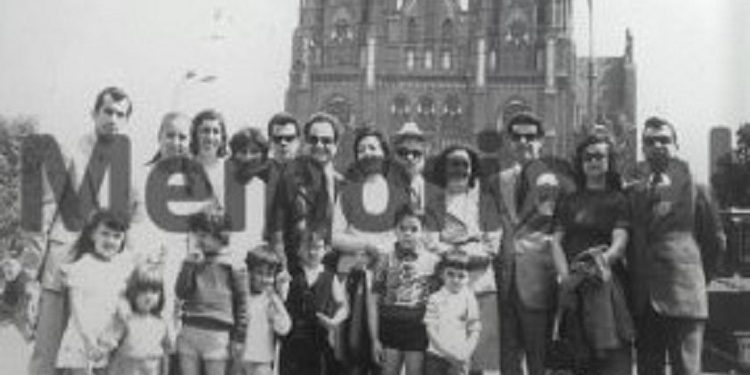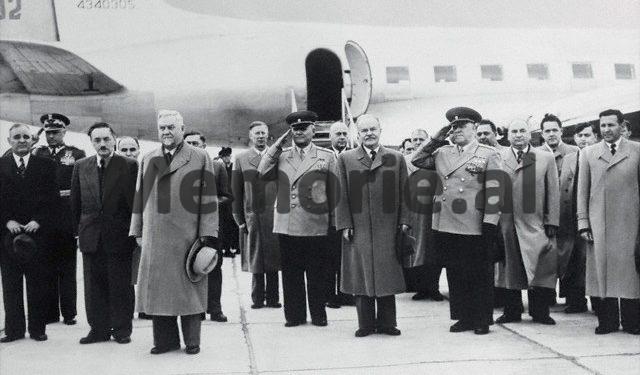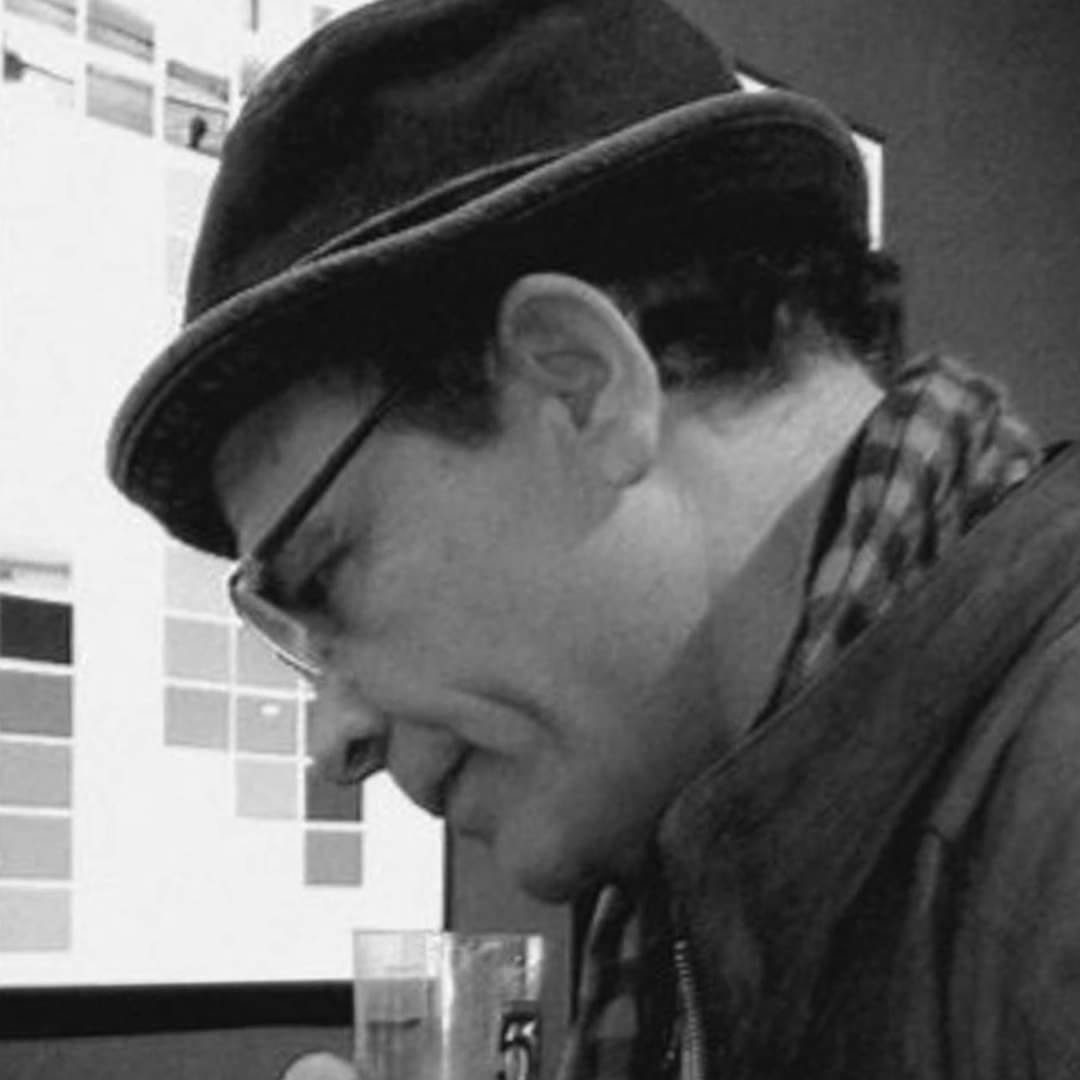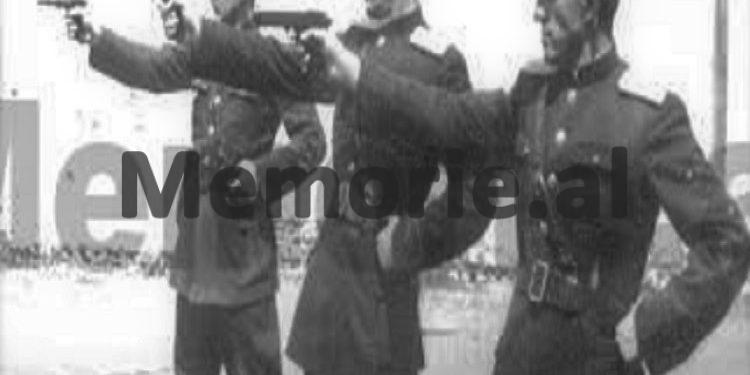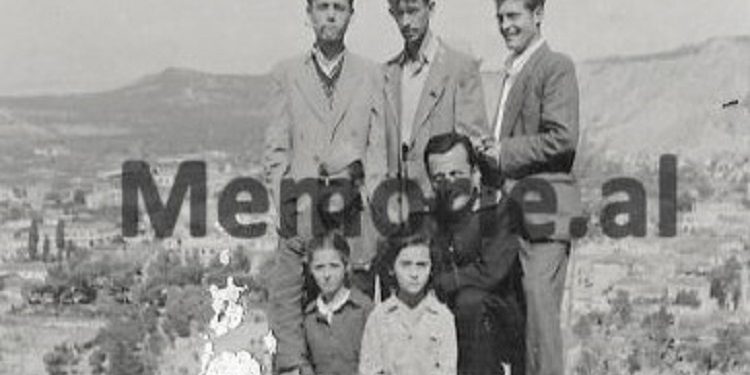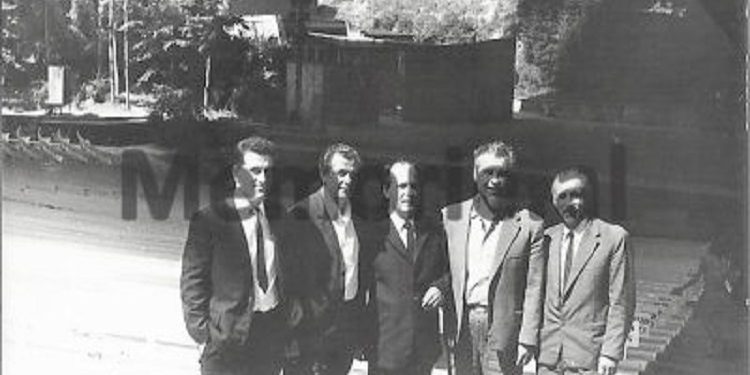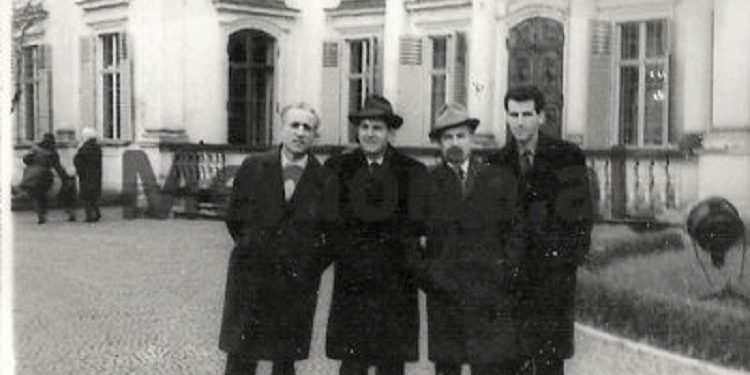By Vasil Qesari
Memorie.al/ The overthrow of the great totalitarian edifice in Albania would leave behind, not only the change of the system, accompanied by lots of hopes, mirages and cries of happiness but, unfortunately, also many wounds, dramas, victims, dust, milk and disappointments from the most different. Ten years and more after that event, which deeply shook society, completely overturning many previous codes, rules and concepts, people still continue to ask themselves such questions as: What really happened in society Albanian, during the last 50 years of the dictatorship? How was it possible that the system managed to warp everything? Why did people accept it? What was the totalitarian logic of the transformation of society and the individual? How were the structures of totalitarian mechanisms conceived and functioning: propaganda, secret police and the exercise of the ideology of terror? How did it happen that among all the communist countries of Eastern Europe, Albania was considered an exception or a special case? Why did Enver Hoxha remain blindly, fanatically loyal to Stalin until the end, turning the country into a prison where violence, fear and purges continued until the end of the 80s? Why was the country so insanely isolated, locking people up between bunkers and barbed wire? Why, then, did all the above phenomena happen…?! The book “Post-scriptum for Dictatorship” does not claim to provide definitive answers to the above questions, or the complexity of the reasons that brought and maintained the totalitarian power in Albania. Nor is it a complete, deep and comprehensive fresco of the life and suffering that people experienced during that system. Its author, perhaps, has the merit that together with the retrospective view of the totalitarian period as well as the zeal of a passionate analyst, he has tried to turn his head back once again, to give not only his personal memories and opinions, but also to return once again to the vision of that era with the simple philosophy of preserving the Memory and supporting the Appeal to never forget the well-known maxim, that…the corpse’s nails and hair continue to grow even after death! Ten years or more after the great revolution, the book in question has current value and we hope it will be appreciated by the reader because, as an Albanian researcher also says… the greatest evil that can happen to a people comes when he fails to analyze his own past. An amnesic people are forced to be constantly neuropathic and repeat their painful experiences…!
Continued from the previous issue..
“IN THE NAME OF THE PEOPLE, YOU ARE ARRESTED…”!
The political processes developed in Albania, starting after the liberation until the days of agony of the communist regime, are a living reflection of the ordeal, the horror of the terror exercised by the ALP and the State Security on innocent people.
Those processes were not only an expression of wild totalitarian violence, but also of the most extreme and flagrant violation of the most basic human dignity. Thus, for example, only Article 55 of the Criminal Code, which made every Albanian tremble, punished with 3 to 10 years in prison, anyone who developed the so-called agitation and propaganda.
In our country – wrote the magazine “Popular Justice” – there is no freedom of thought for the enemy elements who, speculating with our democracy, try to spread their anti-socialist, reactionary, liberal and bourgeois-revisionist ideas and thoughts in the public opinion, with the aim to degenerate and destabilize all areas of life.
Consequently, the punishments, even for a single word, the arrests without reason, the mounted political processes, the imprisonments without guilt, the sufferings and the horrors experienced under the totalitarian oppression, were endless. From them, for the reader, we are presenting some cases. What the author of this book has observed from afar has been able to collect or hear through confessions and testimonies from different people…
1964.
The Albanian capital was deeply shocked by the discovery of an extremely dangerous group. It was the so-called “Group of Poles” which was called such because the people who were part of it had finished their higher studies in Poland and, according to the accusations, had secret connections with the Polish Trade Representation in Tirana. One of the former members of that agency group, Eng. Spiro Nikolla, currently residing in Greece, says:
Besides me, the group of “Polish agents” also included Eng. Vedat Buzi, at that time former director of the “Ali Kelmendi” Food Factory. (Brother of the ‘People’s Hero’, Hiqmet Buzi from Kallarati, Vlora). After the rigged process, he was sentenced to 15 years in prison and died in the Ballshi camp from a ruptured stomach. The other member of the “group” ing. Sofokli Lulo, former lecturer of the Higher Agricultural Institute of Kamza, was sentenced to 15 years in prison, while Eng. Adem Nurja from Shkodra, with 10 years…”!
Almost at the same time, in Vlora, B. Konomi also fell victim to the insidious traps of the Security. This “enemy of the people” was the son of Mr. Konomi, a well-known patriot from the Himara coast. (He was an early supporter of popular power and a personal friend of Hysni Kapo himself) streets and squares, people enthusiastically threw Enver-Tito slogans, Dhimitri’s son was sent to study in Yugoslavia, where he graduated as a naval officer.
But, then, he was accused as their “agent” and was imprisoned for 18 years. His brother, S. Konomi, a former engineer in the assembly company in Fier, had the same fate later, which was arrested for “agitation and propaganda” and sentenced to 8 years in prison. The noble Konomi family, throughout the years of the dictatorship, suffered enormously from the continuous humiliations, pressures and provocations of the Security as well as of the popular power itself, for which their father had invested so much…!
1980
All the residents of Vlonia learned about the sudden arrest of the engineer of the wood processing company Sefer D, who had completed his higher studies in Czechoslovakia. He had just recently returned from a trip to Sweden, where he had participated in an international fair for wood industry machinery. After returning to the country, as it seemed, he had talked with some friends about what he had seen of the life and progress of the developed Nordic country. As they say, among others, Sefer D, somewhere he expressed:
-“…In Sweden, people drink beer instead of water”! Those who had heard those words were shocked! How could such a thing happen, in a capitalist country, where the people suffered for their bread and the uncertainty of tomorrow…?! That word, then it was heard in the raised ears of Sigurimi. That was enough for Seferi to become the object of the eavesdropping work of the informants, who reported on the bile that poured against the system of the happy life itself in the socialist homeland…!
“The arrest of Sefer, – says A. E., former accountant in that company, – was as “spectacular” as it was scary. Even to this day that I remember, my flesh trembles and my body become flies. For Eng I had respect for Seferin, not only as a colleague, but also because he was quite polite, skilled and prepared as a specialist.
One day, we were told to gather in the Red Corner of the company, for an important meeting. Since our offices were nearby, we went out and went there together. There will be a meeting to implement the plan – he told me quietly. I thought so too, because at that time, the implementation of the plan in the enterprise was going very badly. But, to everyone’s surprise, the secretary of the party bureau, at the very beginning of the speech, announced that in the ranks of our collective, there was a “dangerous” individual who was carrying out “hostile” activities.
Before finishing the speech, there from the front rows, we saw the Deputy/Head of the Internal Affairs Department, Meramet Hila (once, a close former high school friend with Sefer), stand up, who then briefly approved the secretary’s speech, shout fiercely: “Sefer D., get up! In the name of the people, you are under arrest! In the hall, everyone froze. Only one woman screamed. Meanwhile, a young man, who was sitting next to him, handcuffed him and escorted him outside, where the “Jeep”-like “of the Internal Branch” was waiting.
That arrest, which made a big impact in the city, was organized not by chance, in a massive collective meeting. His purpose was well thought out. First, to terrorize those present, who would then, of course, amplify the fear in their families and circles? And, secondly, to show once again, publicly and brutally, that the State Security was aware of everything, that not even the smallest word escaped him, and that Sefer’s fate would be met by anyone who did not he could keep his mouth shut and speak against the Party.
Special and interesting, is the story of the arrest of another innocent Vlora, named Harrilla B. (And to this day, by many people, he is remembered as the first owner of a television receiver in Vlora, which he had sent by father-in-law, immigrant to the USA).
It was 1964, the year of the World Cup. Harilla’s house, in Skëla, was transformed into a real sports environment. There, dozens and dozens of them had the rare fortune of seeing for the first time in their lives a television image, and moreover, an international sports event.
In order to satisfy the demands of many viewers, Harilla had put the TV out in the garden in front of the house and thus, the surrounding environment was turned into an outdoor cinema hall. The viewers were different: neighbors, football players, trainers, young people, passionate fans, friends, etc. Everyone was standing, except for those who were in the first row, where a dozen chairs were placed on which the authorities sat, including… Security operatives.
From that time and a few years later, for Harilla B, everything went smoothly. That situation lasted until 1982, when, in a District Party Conference, where R. Alia himself was a delegate, among other things, there was talk about the thefts and sabotages that had happened in the Reclamation Company where Harilla worked as the chief accountant.
A few days later, a State Control team landed urgently in the company, which started work to detect thefts and sabotages. Parallel to it, but in complete secrecy and with its well-known methods, the State Security also started work.
After days of meticulous and tendentious checks, to everyone’s surprise, no violations were discovered. How is it possible…? The party was wrong in finding sabotage…? No…! The party could never be wrong in its analysis and vigilance. It remained, therefore, that after the inspection, Sigurimi came into play.
Eventually, the enemy saboteurs were discovered. The director of the enterprise, Sefer C., was immediately arrested, followed by the head of the account, Harilla B. (who, in addition to being a saboteur, was also accused of agitation and propaganda carried out through television, as well as being a Vorio-Epirote agent).
Harilla B. was first sentenced by firing squad, which was later reduced to 25 years in prison. He was released in 1990 and currently lives with his family in the USA…! Memorie.al




